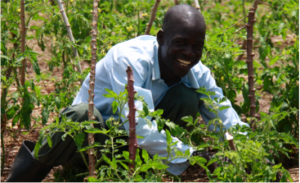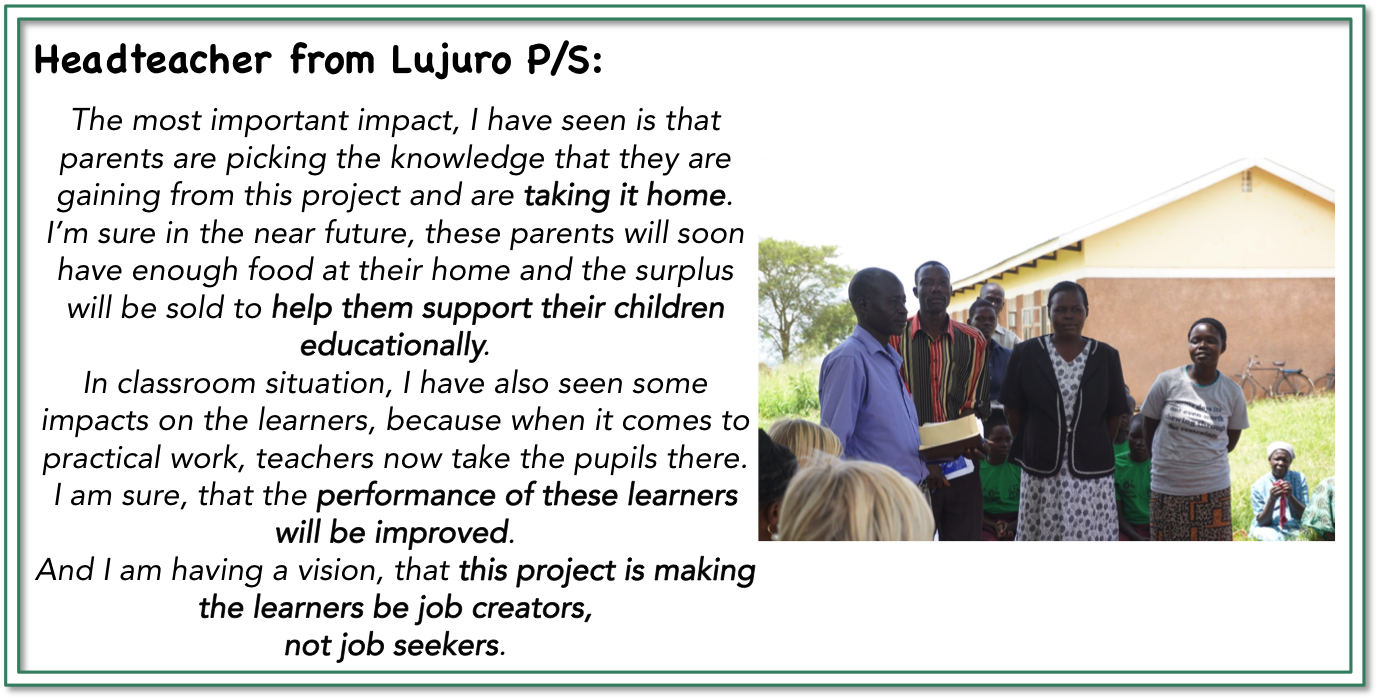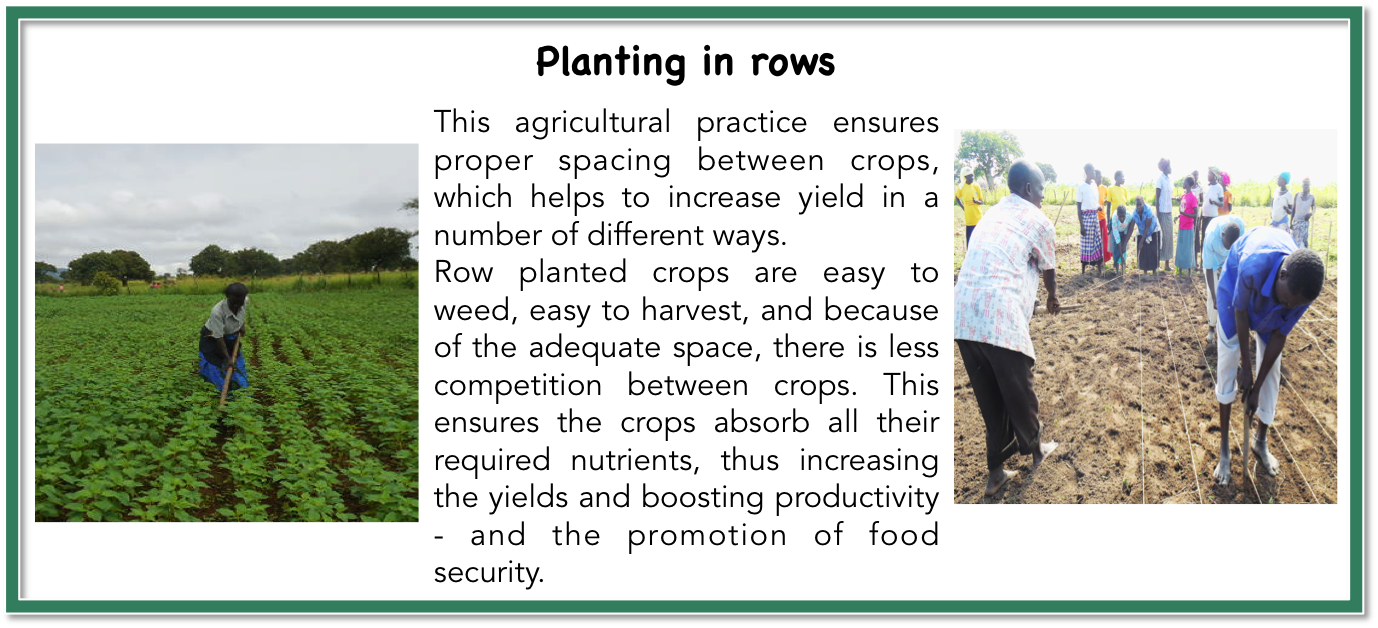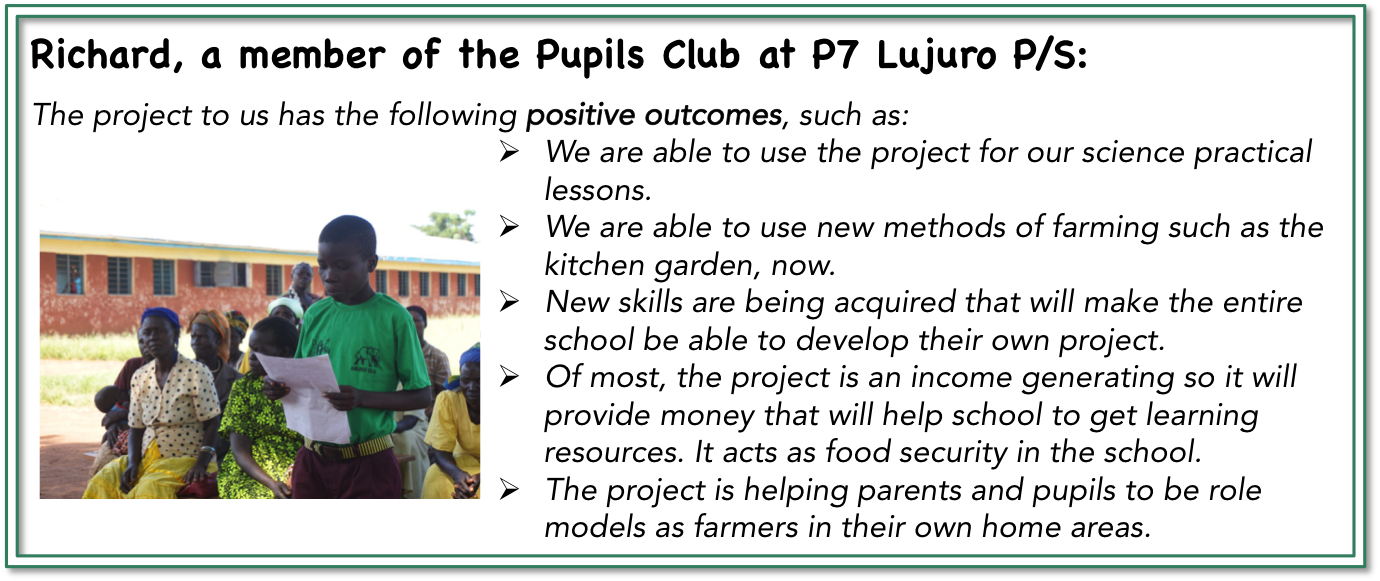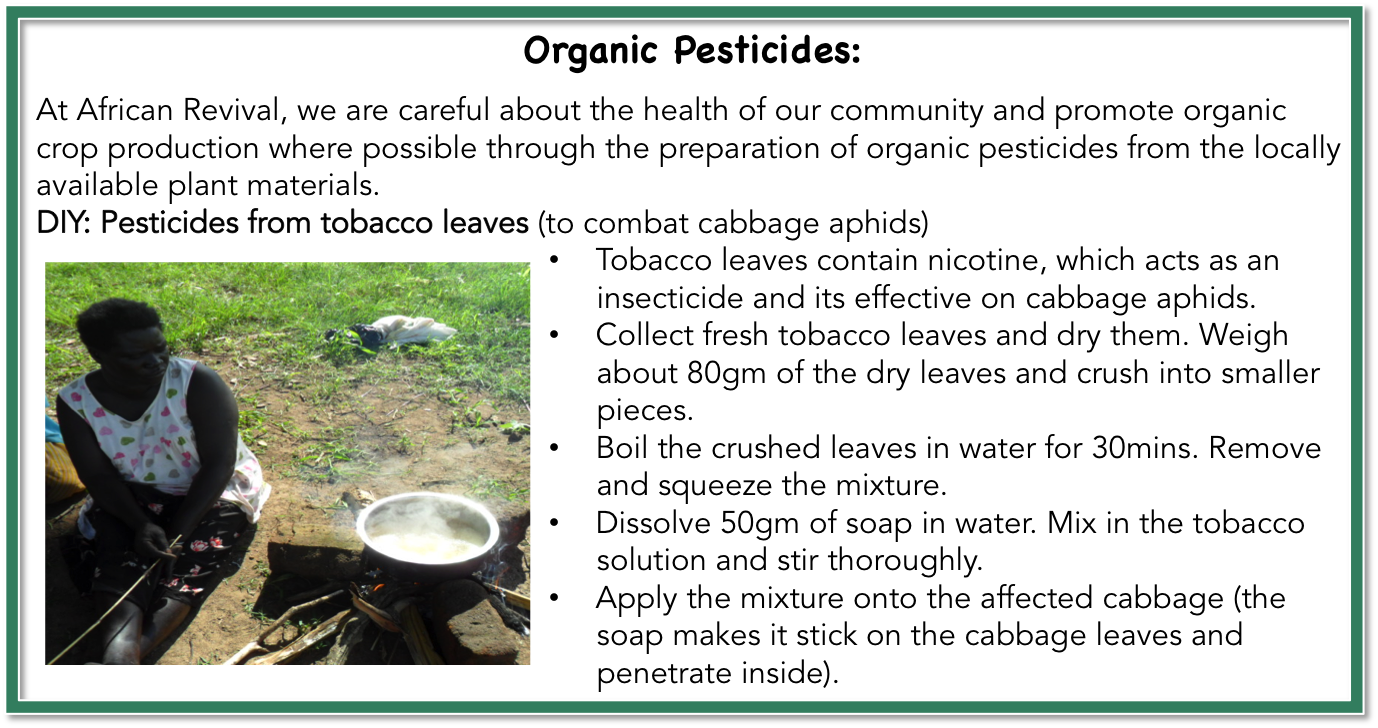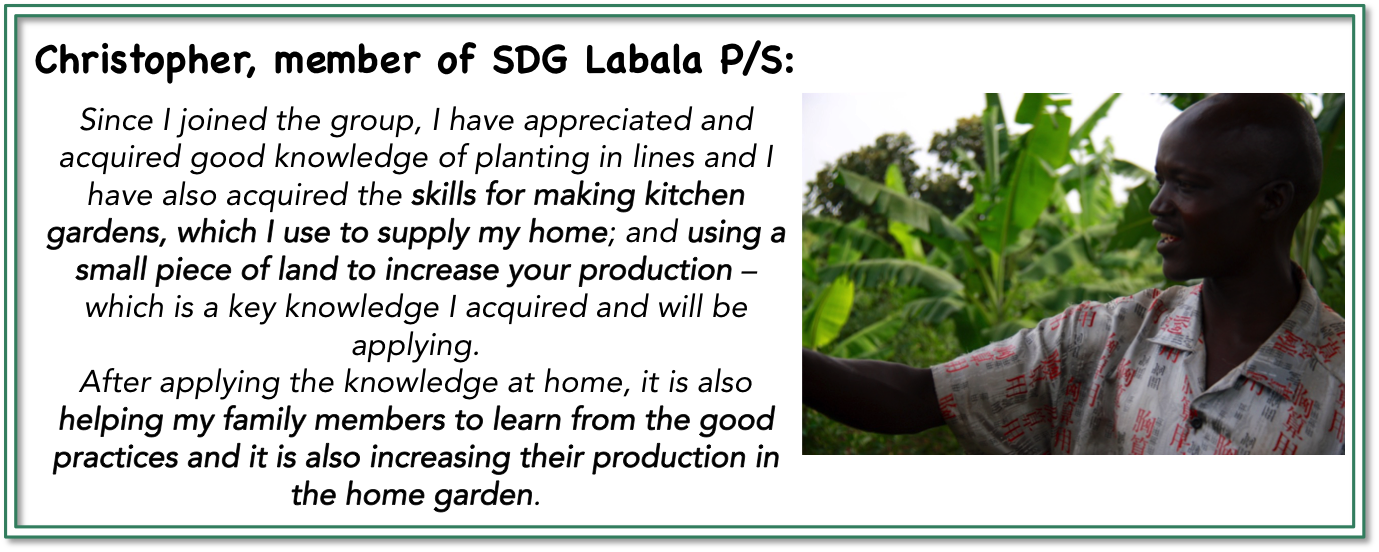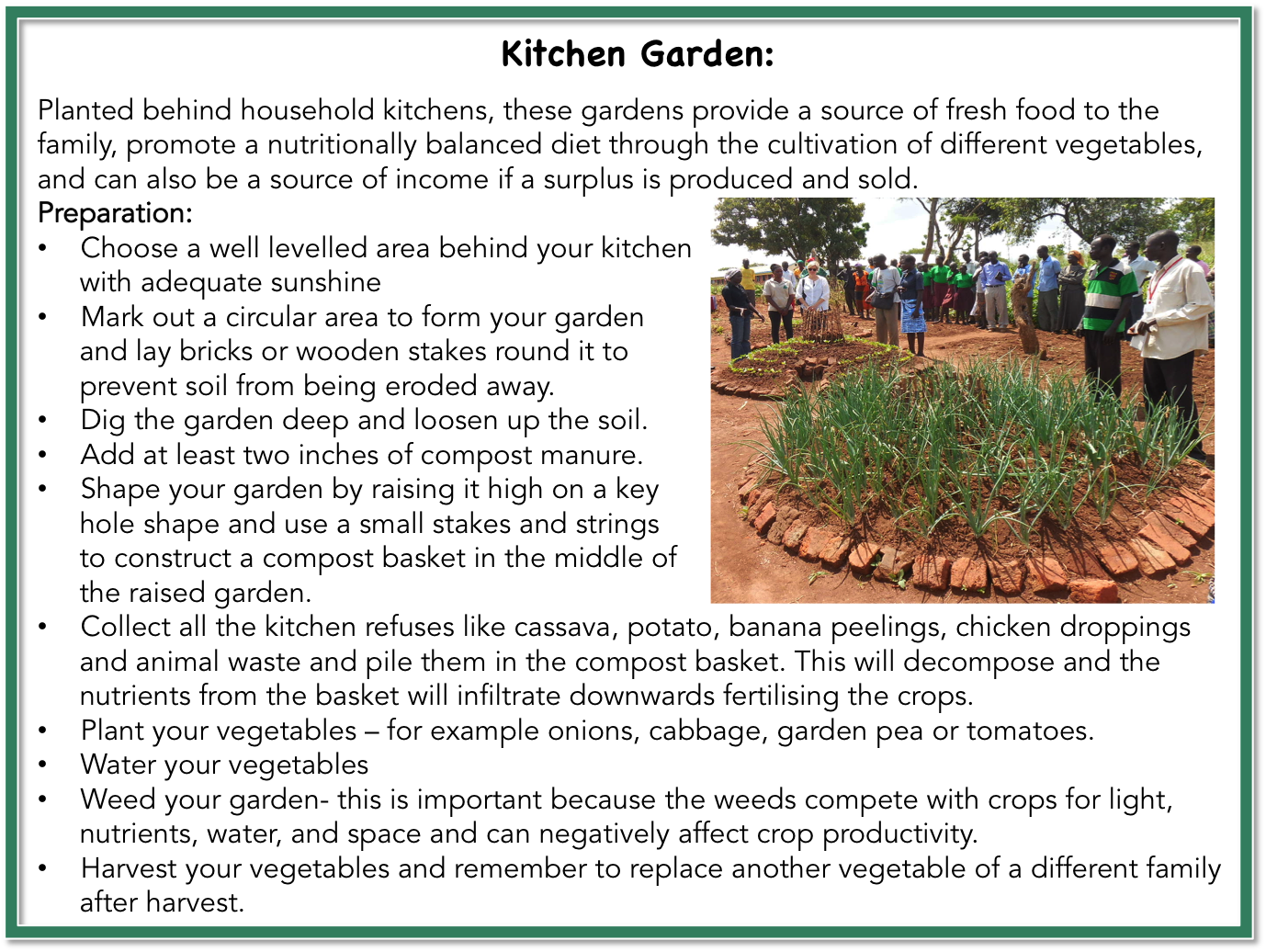Happy World Food Day!
October 16, 2015‘Either we build a future for all, or there will be no acceptable future for anyone:
Let’s be the Zero Hunger Generation!’
– is one of the messages of the Food and Agriculture Organisation of the United Nations. and through our School Demonstration Garden Project, we are working towards this goal too! Currently, we implemented the project under the name LEARN in Agago and Abim in cooperation with SVN and in Amuru thanks to the support of the Bestseller Fundation. And, we have just secured a multi-years grant to implement the SDG in Zambia!
What do we do?
We set up farmer groups comprising of up to 50 parents who work at the school on the demonstration garden, attend weekly meetings and receive practical training by AR field staff. Our field staff support them in every step of the way from the preparation of the land to the marketing of their produce and finally, they also receive training in saving techniques and financial management to ensure their financial stability. After selling their produce, 30% of the harvest profits is saved for the next season, 40% is distributed among parents and the school receives 30%. Previously, these profits were then used to provide school meals, subsidise fees for poorest pupils or provide scholastic materials. Furthermore, pupils entrepreneurship clubs are formed too, in order to ensure the next generation are acquiring valuable skills.
Why?
Agriculture continues to play a critical role – i.e. in the Ugandan economy, employing 82% of the national workforce. Low yields and inefficient agricultural practices leave households vulnerable. As a result, children also often go hungry while at school, a major factor as to why Uganda has the highest school dropout rate in East Africa. Additionally, this affects concentration levels and learning retention. Therefore, this project ties education and livelihoods together, and is one of African Revival’s core areas of expertise as our intervention seeks to address two interlinked issues – low quality education at a primary level and food insecurity compounded by poor agricultural productivity. We aim to create stronger links between parents and schools leading to increased enrolment, attendance and academic attainment, and children are also learning practical agricultural skills. Parents and pupils increase agricultural productivity both at the school garden and home gardens, both increasing food security and nutrition. In the end, we want to empower these communities to lift themselves out of poverty!
To celebrate the World Food Day we’ve prepared a few of our recent gathered reflections of our beneficiaries, some photos of the new agricultural techniques implemented in the school and some ‘do it yourself’ tips for all growers out there from our agriculture team.
As we aim to strengthen a strong sense of community throughout the project, parents, pupils and teachers are working hand in hand to secure a hunger-free future in which every child is nourished well, and able to thrive in his/her education/at school.
Happy World Food Day!

